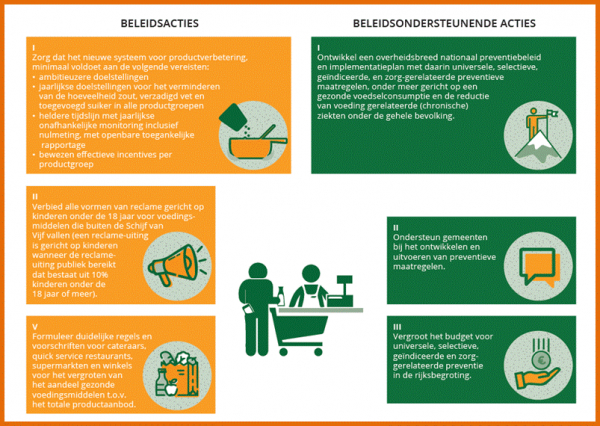As part of Work Package 1, PEN researchers examined national government policy on food environments in the Dutch context. The researchers asked 28 independent Dutch experts at universities, local authorities, and health and civil society organisations to make assessments based on 22 policy indicators referencing national government policy on the creation of a healthy food environment, divided into six categories: food composition, labellling, provision, pricing, marketing and retail. The experts also looked at 24 indicators referencing policy support domains, divided into the categories of leadership, governance, monitoring, funding, platforms for interaction, and health-in-all policies. The research was based on the Healthy Food Environment Policy Index (Food-EPI), an internationally standardised food policy assessment tool. Compared to international best practice, the Dutch Government is missing opportunities to ensure a healthy food environment, meaning an environment in which it's easy for people to make healthy food choices. The research calls for 29 specific actions reflecting more ambitious national government policies to support healthy food choices among the Dutch population.
Read the final Food-EPI Report here (Dutch)
Read the Evidence Document here (Dutch)
